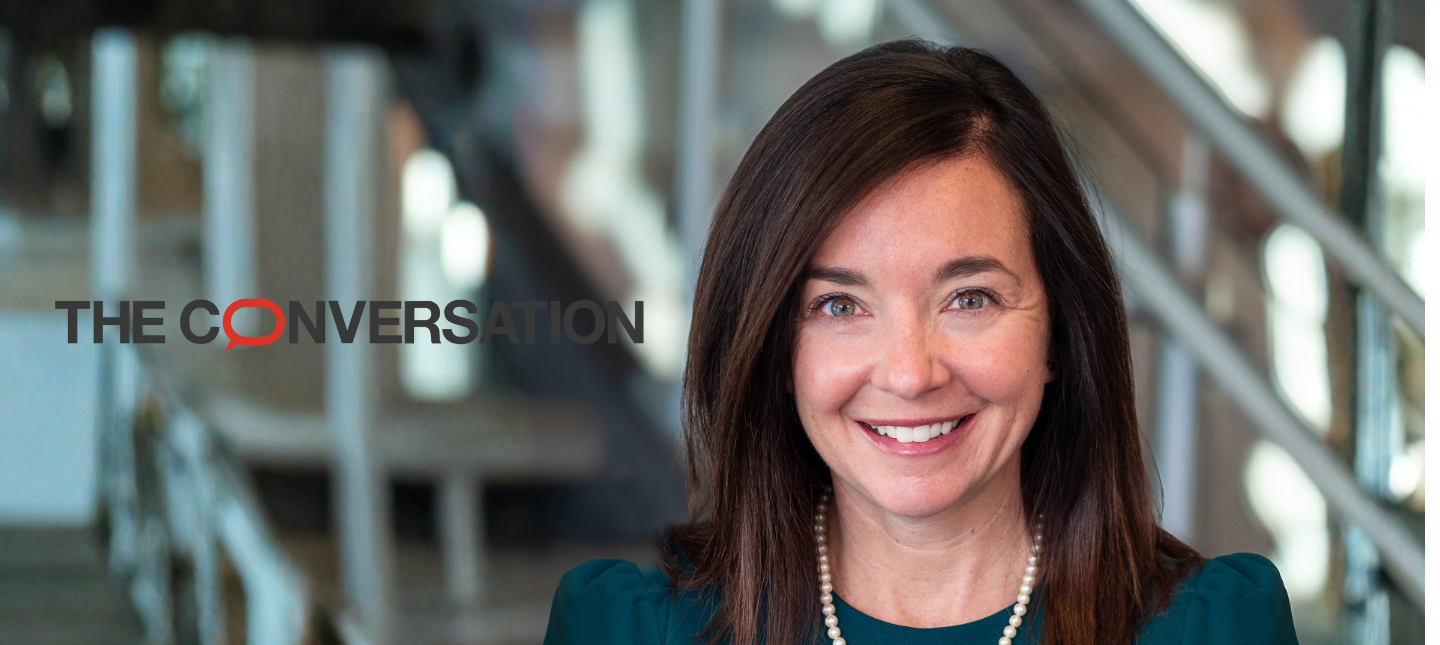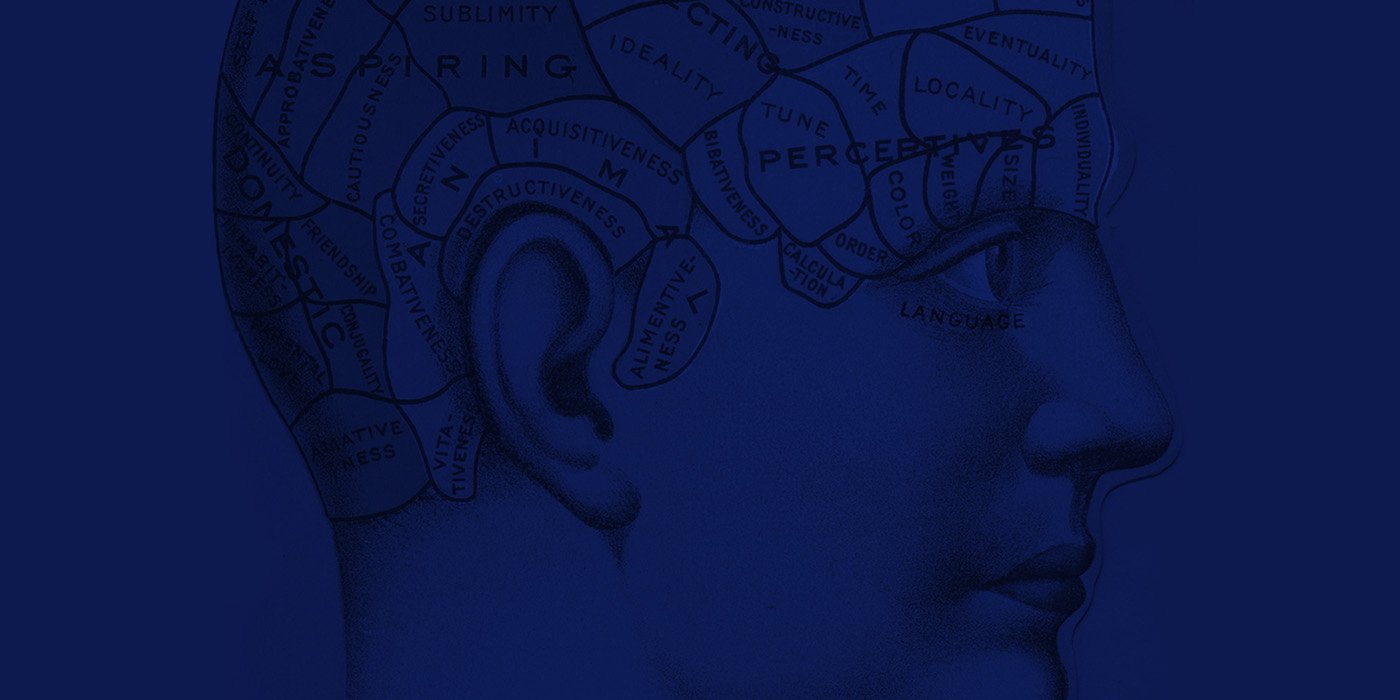Transcript
From the Regenstrief Institute, this is The Problem.
The Problem is an anthological podcast dedicated to fighting the hydras of healthcare, those complicated, big, hairy issues that impact health on the societal level.
Every season you’ll hear about a different significant problem, and each episode within that season will feature a different discipline or industry’s take on that problem — how it’s being addressed, how it’s being talked about, and the trials and triumphs of those
involved clinically and personally.
You don’t need a PhD to be affected by these issues, so you shouldn’t need a PhD to learn more about them. Regenstrief Institute is a global leader dedicated to improving health and healthcare through innovations and research in biomedical informatics, health services, and aging.
Welcome to The Problem.
Phil Lofton:
What’s your first memory of your grandma?
Mindi Winnie:
I mean, I think the thing that’s just most, I don’t know… present in my mind is just my grandmother being at everything. Like, she was my ride to dance classes. She brought me food every single day at dance class. I had my grandparents and especially my grandmother all to myself. So we just had such a unique bond. So I think for me, it was just her being present at everything.
I graduated from college in August of 2009. Excuse me, May of 2013. And then by August of 2013, my grandma had passed away. But at that point, I mean, at the time of my graduation, she was not able to be there. You know, of course, any graduation ceremony is long, but a college graduation…
Near the end, she would just sit in the family room, and then she’d get up and then she’d walk around the house and then she’d sit down for a minute and then start again. I mean, it was just constant pacing and wandering. And so, I mean, there was just no, no way she could have been there. But you know, if she would have been aware that she was missing my college graduation, it would have just killed her.
Phil Lofton:
The story of cognitive illness goes back quite a long way. The concept of cognitive illness is ancient. For centuries, humans have associated advanced age with mental decline.
But in many ways, the story of this season’s problem really begins in the 19th century with a Bavarian medical student named Alois. (Editor’s Note: Multiple sources informed this segment; however, I highly recommend reading Cipriani’s offering on the topic, linked at the end of this portion). Alois, a charismatic young man, and a fencer, was drawn to diseases of the brain.
After he graduated from medical school in Wurzburg, Germany, Alois left to Frankfurt, to begin his career in the city’s asylum. Emil Kraepelin, a famed psychiatrist in the region, took note of Alois’ abilities, and decided to mentor the young doctor.
Over the next few years, the two worked together on a variety of cases involving senility in older patients, including a posthumous examination of the brain of one of Alois’ patients, Auguste Dieter.
Frau Dieter had shown a loss of short-term memory and symptoms beyond those of his usual patients, including hallucinations, disruptive behaviors, and delusions. Alois became fascinated with determining what had caused her decline.
In the course of his work in Kraepelin’s lab, Alois discovered something unique about Frau Dieter’s brain, two physiological symptoms that would come to define her disease: amyloid plaques and neurofibrillary tangles, both of which disrupt the brain’s function.
Alois published a paper on his findings, calling Frau Dieter’s condition presenile
dementia, though another name for her condition would emerge three years
later in a paper from Kraepelin.
He would name the disease — a disease that now affects nearly 6 million Americans and their 16 million caregivers — after the surname of his mentee, Alois.
Welcome back to a new season of The Problem. I’m your host, Phil Lofton.
[THEME]
Alzheimer’s disease has, over the course of the last several decades, become a major focus of discussion on healthcare. But what, exactly, makes Alzheimer’s unique from other related diseases like dementia?
Here’s Dr. Chris Callahan, a Regenstrief scientist, the former and founding director of the IU Center for Aging Research at Regenstrief, professor of medicine at the Indiana University School of Medicine, and Chief Research and Development Officer for Eskenazi Health.
Chris Callahan:
A good way to think about this is that dementia is a very broad category, like we have trees, but we have many different kinds of trees. So you could accurately call a tree a tree, but you could also call it an oak tree or an elm tree. And so there are different types of dementia. Dementia means that you’ve had a fall in your cognitive functioning that’s severe enough to interfere with your social functioning. So people sometimes will be concerned that they can’t find their keys or their glasses or they forget somebody in a social context, but those kinds of things happen to us all the time.
When we get older, we get more concerned that it might be evidence of dementia. But we’re talking about impairments in your memory or other parts of your brain function that impair your ability to take care of yourself and do the kind of social roles that
you’ve always done. So Alzheimer’s disease tends to present initially as difficulty with short term memory. That’s the hallmark of it. But even that by itself isn’t enough to label it Alzheimer’s disease. You need to have impairment in other areas like your ability to plan or your ability to control things in a visual spatial context. Your ability to use language and recall words or name objects, and then also, we sometimes have concerns with folks’ judgment and reason.
Depending on which of those areas are impaired first and the most, that helps us decide what type of dementia that person might have. Now, having said that, when you reach an older age, say 75 and older and you develop dementia, it’s most likely going to be Alzheimer’s disease is at least part of the explanation. But it also happens that we have mixed dementia very commonly too, so you might have a vascular dementia due to poor circulation in your brain. And that’s mixed with an Alzheimer’s disease or an Alzheimer’s disease mixed with any other kind of dementia. So that is common for you to have more than one pathology in your brain.
Phil Lofton:
And that’s where we get the phrase Alzheimer’s disease and related dementia from?
Chris Callahan:
That’s exactly right.
Phil Lofton:
With the aging baby boomer generation now almost entirely entered into retirement, the prevalence of Alzheimer’s disease is only going to continue to increase.
In fact, scientists are now estimating that by 2050, there will be more than 14 million Americans living with Alzheimer’s disease and there will likely be 42 million Americans providing unpaid care to these patients.
Alzheimer’s affects every aspect of a person’s life, as well as the lives of those who provide them care, and those in their community.
The search for a cure has been unsuccessful, but even if scientists were to find one today, there would still be millions of families needing support as they navigate life with cognitive decline.
It’s an issue of policy and pharmacy, infrastructure and informatics, medicine and marketing.
It’s an issue that, more and more, will become one of the biggest health challenges of our time.
This season, we’ll be looking at Alzheimer’s disease and related dementia. Through discussions with scientists, policy makers, and those most affected by the disease, The Problem will explore the impact that Alzheimer’s has on the lives of patients and caregivers, where the current research stands, and ways you might be able to reduce your risks.
The season will start with a short arc of four episodes on life with Alzheimer’s, focusing on the community perspective, the health systems perspective, the caregiver, and finally, the patient. After that, there will be one episode on screening and diagnosis for
Alzheimer’s, ways to reduce your risks — diet and exercise, pharmaceuticals that might cause cognitive decline, and an episode on some possible causes of Alzheimer’s and dementia that might surprise you.
As you might imagine, it’s hard to talk about societal-level changes to diet and exercise behaviors without talking about public policy, just like how it’s difficult to talk about the
effect of pharmaceuticals on cognitive health without talking about the way that health systems operate and how medications are prescribed in the first place.
While there isn’t yet a cure, thanks to the work of countless specialists, volunteers, lobbyists, friends, families and patients with Alzheimer’s, we in research and healthcare have learned so much about ways to improve the lives of those living with this condition, and many are hard at work to learn even more.
Join us next time, as we discuss how to make beneficial policies and communities that are safer for individuals with Alzheimer’s, on The Problem.
Music for this episode was from Everlone and Broke for Free. Our theme, and additional musical cues were written and performed, as always, by Bert Flooterman.
The Problem is produced at studio 134 in the Regenstrief Institute in Indianapolis, Indiana, where we connect and innovate to provide better care and better health. Learn more about our work and how you can get involved at regenstrief.org, and see bonus content from this episode, including sources, pictures and more, at regenstrief.org theproblem.
The Problem is written, hosted, edited and produced by me, Phil Lofton, with additional editing by Andi Anibal, John Erickson, and Jen Walker. Web design and graphics are by Andi Anibal, and social media marketing is by Jen Walker.






